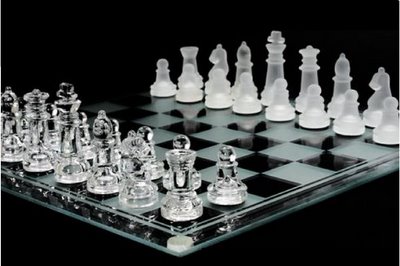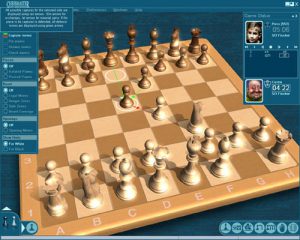How to play chess in a lost position?
If you play chess regularly, there is a high possibility that you would have to play a game in the lost position. Does not matter how strong or weak chess player you are, you will have to defend the “weak” end of the board one day. There are plenty of information available (in various chess bibles and online recourses) on how to play chess, but they rarely talk about playing chess in the lost positions. They assume that if position is lost the game is over. It’s not quite true. The point of my little writing is to prove that there are exceptions to this rule. If you apply some basic principles you may be able to join that “exception” group, replacing you “0” with “1/2” or even “1” on the score sheet.
The first step of our simple process is to realize that you’re really losing. Most chess players are usually afraid to face this fact during the game (you may want to review Chess psychology: is it really there). These players still think something like “my position is okay”, “I can draw it” or “my opponent isn’t much better here” when technically the game is lost. In order not to join this “losing pool” of players you must be certain that you are really losing and yes, it really the case. When you realize that you’re position is hopeless. You will feel less nervous and feel less pressure, but your opponent on opposite will get the pressure since he can be the one who didn’t win that completely won position. You will calm down because it’s nothing for you to lose anyway (since the game is already lost) and come up with a new plan of how to make your opponent’s life more difficult.
Changing the plan drastically or coming up with the completely new plan is a key point for your success. I think most players would agree with me, that following an old plan of exchanging pieces and playing the King and Pawn endgame, isn’t a good idea, if you’re now a piece down. Therefore, the plan must be change depending on new circumstances. For example, if you’re a minor piece down, try to exchange pawns, not the pieces, since the King + Minor piece vs. King is a dead draw. It’s more complicated than that usually. You opponent will try to make your life more difficult by exchanging pieces and not pawns if he wants to win. Tactics is the key weapon during any stage of the game and especially when down some material. Some endgames with uneven material (such as Rook vs. Queen) can be playable, but require strong nerves and fresh mind.
Another tip is to play actively. If you are a material down you should not play quietly and wait when you opponent will come and checkmate you. You should make his life as difficult as possible by complicating the position. It is so nice to play won position when position is simple. Therefore, you should take away that opportunity from your opponent. If you see the unclear variation when it’s not obvious for you if you are losing or not you should play it. Avoid playing lines in which you see a clear way to win for him (if it’s possible). Never give something for nothing, its chess. Review how to play against a stronger opponent.
What if you are more than a minor piece down, what if you are down the whole rook? Say, that brilliant sacrifice you came up with didn’t lead to the mate in 3 because you missed something. Even if you exchange all the pawns, King + Rook vs. King does not look like a good endgame for you. So, the only chance here is to come up with an attacking plan and setup traps hoping that you opponent will get too confident in his advantage and make a mistake. It doesn’t happen in 100% of the games of course but even if it happens in 30% you can get some extra wins and draws. Why not try? You have nothing to lose anyway.
I believe psychology plays a huge role in chess and especially in playing the lost positions for both sides. Most good chess players, either they admit it or not, are pretty good emotion readers, which means they can predict by some special body language if the opponent is nervous, aggressive frustrated or about to give up.
The idea, first proposed by a Grandmaster Simon Webb is pretty simple and yet a powerful one. If you are playing on the losing side of the board you should look as boring and uninterested as possible. Maybe it’s a good idea to even stop writing the moves down (if the rules permit) to completely inform your opponent that you gave up and will most likely resign in the next 5 moves. He can become overconfident and blunder something. Even if he doesn’t blunder, the resignation is not a part our plan. A little you opponent knows that as soon as you have a chance to strike back, you “bored face” will be change with “attacking face”. At that point your opponent will lose confidence, feel scared of defeat, become nervous and probably make a mistake.
Try it at your own risk!










Comments: